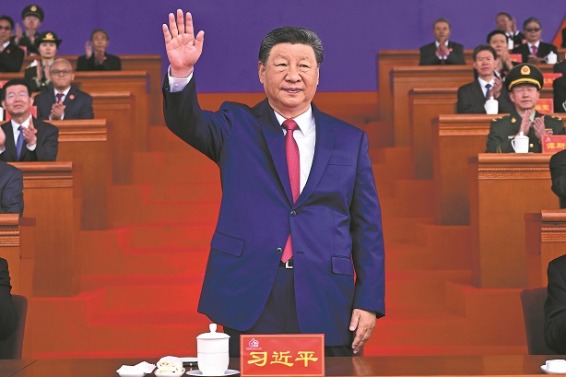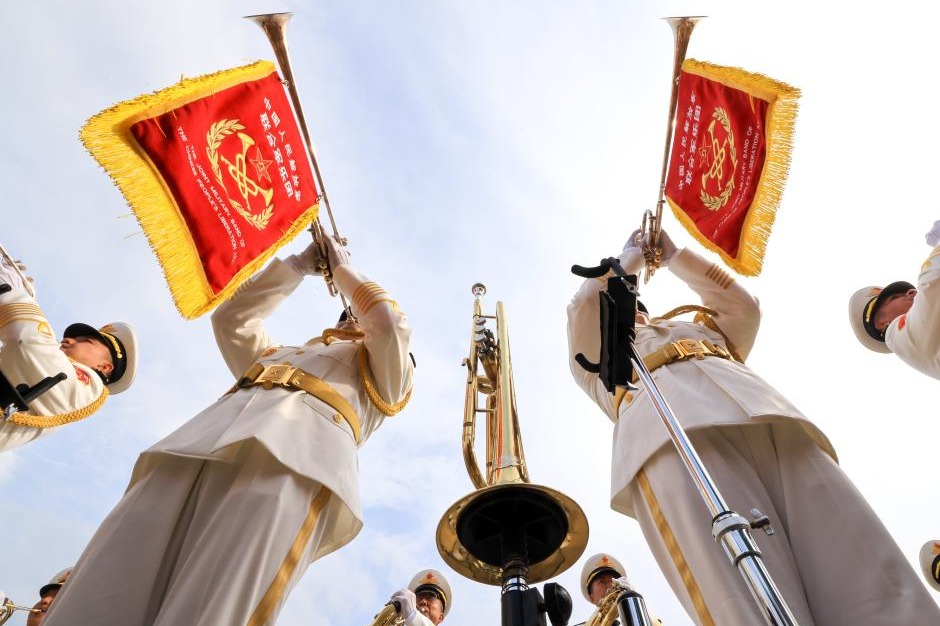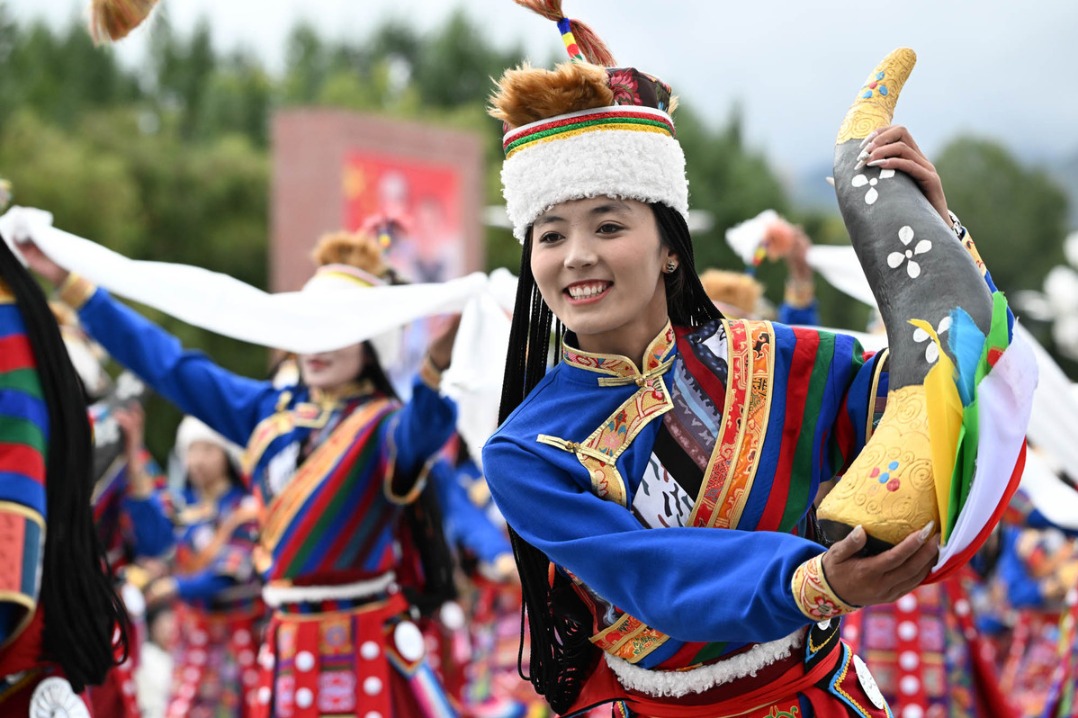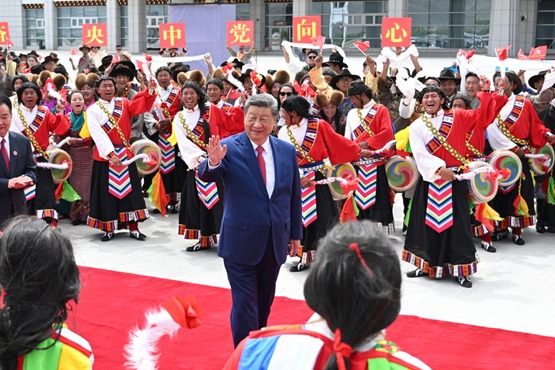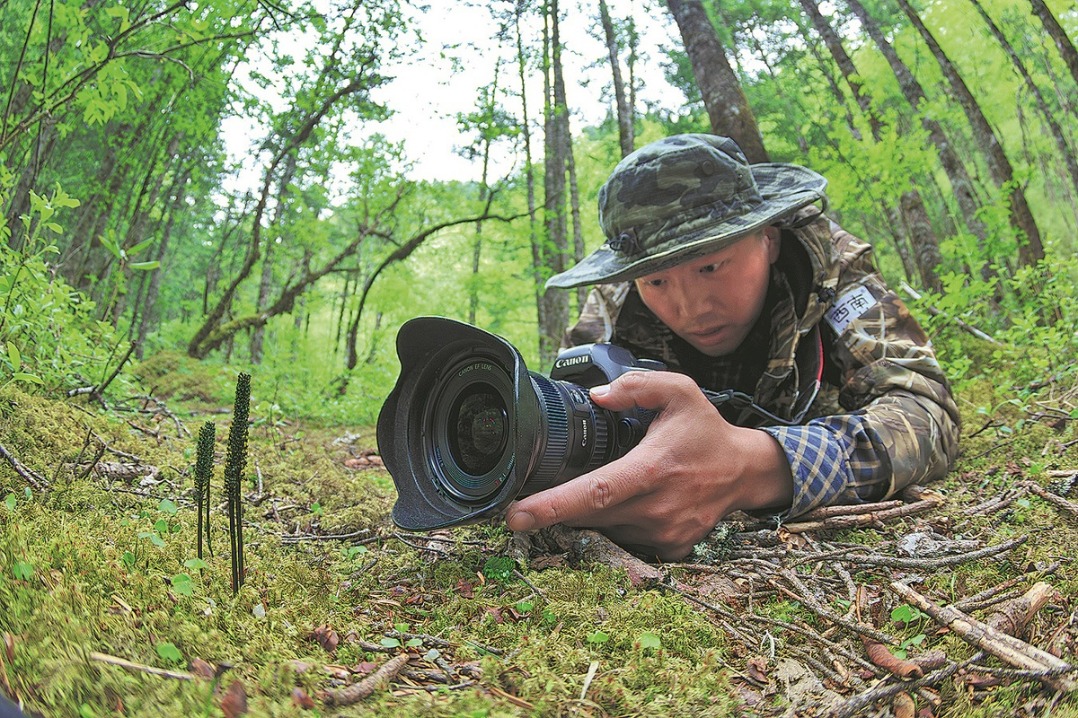Noted doctor, volunteers improving villagers' lives

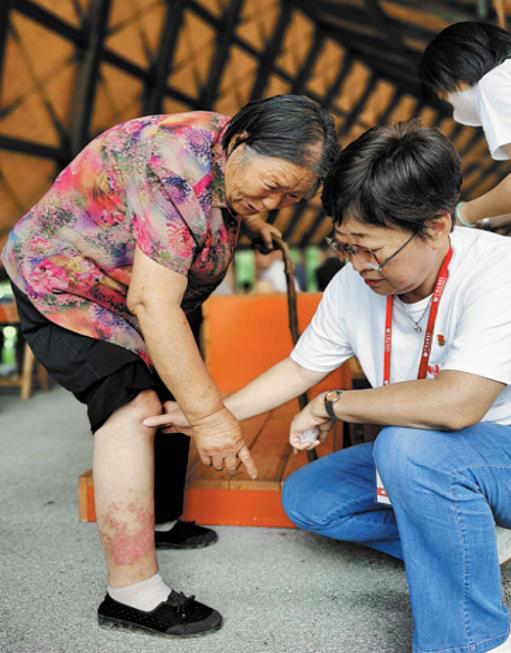
Editor's note: As the Communist Party of China celebrates the 100th anniversary of its founding this year, China Daily talks to CPC members to know what made them want to become a Party member and the impact this has had on their work and life.
On the way to Xi'an, Shaanxi province, on Sept 19 last year, Ling Feng, chief neurosurgeon at Xuanwu Hospital affiliated with Capital Medical University in Beijing, and three other doctors got caught in traffic caused by a fatal car crash.
They walked 1.5 kilometers to the scene of the crash and joined ambulance crews, firefighters and traffic police in giving first-aid to the injured.
The four doctors had just finished volunteering to see patients in Pucheng county in the province in Northwest China.
Ling, a prominent neurosurgeon, has treated countless patients and greatly contributed to developing treatments for spinal cord vascular malformation.
In March 2017, she initiated the Chinese Medical Volunteers Working Committee in the Chinese Medical Doctor Association as a platform to include doctors' efforts in the national campaign to root out poverty in China. Financial support was urgently needed to begin that initiative.
Ling established a foundation. To provide seed money for the project, her husband sold his father's apartment and donated 2 million yuan ($308,000). That enabled the Beijing Ling Feng Foundation to be set up, and the first Chinese Medical Volunteers Action was carried out three months later in Yunnan province.
By the end of 2020 the Chinese Medical Volunteers had visited 206 State-designated poverty-stricken counties to provide free medical services to local patients and training to local doctors. So far, 5,000 doctors nationwide have registered online as volunteers to join the action team when there is need in the rural areas, Ling said.
They have established workstations in which volunteers form long-term links with the local doctors to help with consultation and treatment, and provide medical training online or offline.
Providing better healthcare helps prevent rural people from falling back into poverty due to illness. By the end of last year, China had achieved the goal of eliminating extreme poverty-a key goal for the new era of building socialism with Chinese characteristics.
Because of the uneven distribution of medical resources in China, hospitals in major cities are crowded with patients from around the country. Many smaller hospitals and rural clinics are shunned because they lack top-tier personnel.
"Illness is a major cause of poverty in many rural areas," Ling said. "We hope our volunteer work will contribute to improving health in these regions in the joint effort to eradicate poverty."
Ling, born to a military family in 1951, joined the People's Liberation Army at 16 and was accepted into Shanghai No 3 Military Medical University in 1970. Upon graduation, she was sent to work at Nanjing General Hospital in the capital of Jiangsu province. Four years later, she began training in neurosurgery. She was transferred to the Chinese PLA General Hospital in Beijing, and she pursued further studies in interventional neuroradiology and microneurosurgery in Paris in the early 1980s.
Since then, Ling has introduced new technologies to China and trained a generation of young neurosurgeons nationwide in endovascular techniques. She spearheaded the development of the China-INI(China International Neuroscience Institute) in Beijing in 2004. A national neurosurgical training center was established in 2007.
Ling served as chair of Women in Neurosurgery in the Geneva-based World Federation of Neurosurgical Societies and was president of the WFNS Special World Congress in Beijing in September 2019.
China Medical Volunteers have also extended a helping hand to other countries, such as Ethiopia, Fiji and Guinea. In Ethiopia, they treated aneurysms; in Guinea, they helped treat children with hydrocephalus; and in Fiji, they provided training for the diagnosis and treatment of strokes, a condition with a high incidence rate there, Ling said.
"We are continuing to recruit new members, but with more overseas missions predicted in the future, we will need more financial support to pay the doctors' travel expenses," she said.
The expenses of Chinese Medical Volunteers doctors are covered purely by the Beijing Ling Feng Foundation, which in turn receives donations from Ling's medical practice, patients' donations and business contributions.
At the annual meetings of the National People's Congress and the Chinese People's Political Consultative Conference in March, Ling, who is a CPPCC member, suggested that rehabilitation rooms be added in rural clinics.
"Rehabilitation helps patients who have been saved from the jaws of death to have a better quality of life," Ling said. "But there are not enough therapists in rural areas."
Ideally, there would be 700 therapists per 100 clinicians, but in China, there are only four.
During her visits to rural areas, Ling found that in many places-especially among relocated communities-a large number of elderly, physically challenged and chronically ill people need rehabilitation. Without medical equipment, the village clinics can hardly help them.
"If some basic rehabilitation equipment is available, rural clinics can help patients rehabilitate in their home village," Ling said.
Ling recommended that a village of more than 1,000 residents have a rehabilitation room in its clinic that has 10 kinds of rehabilitation devices, three physiotherapy instruments and other medical appliances such as an electrocardiograph and a blood pressure machine. And more volunteers need to be recruited from Chinese doctors, especially rehabilitation therapists.
"It costs only 80,000 yuan to set up a rehabilitation room," Ling said, calling local authorities to allocate financial support from their budgets.
She predicted that about 30,000 rehabilitation rooms would be established in the formerly poverty-stricken villages with in two to three years.
"I hope that each and every of the 690,000 villages in the country has a rehabilitation clinic eventually," Ling said.
In June, Ling, a CPC member for 48 years, was awarded by Beijing Municipal Party Committee for her extraordinary job.



















